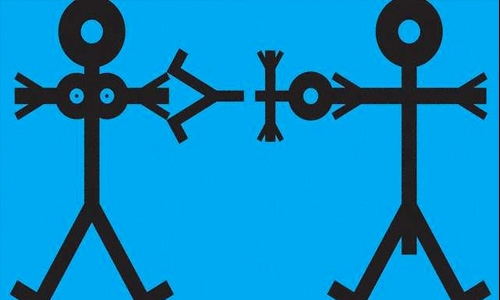More women seeking divorce: Dubai Courts
The Dubai Courts has seen proceedings of as many as 1,481 divorce cases in the last two years. The number of cases has gone up when compared to the 1,237 cases during the same period last year.
Out of the cases heard for this year until September, 206 cases of marriage termination were called for by the wife. In 2014 - during the same period (till end of September), - there were 204 such cases.
A total of 293 transactions related to declarations of Khula (the procedure where the wife takes the decision to end her marriage is legally known as 'Khula') were done by the courts in 2014.
Dr Abdelaziz Al Hammadi, head of the family reconciliation section, Dubai Courts prepared his diploma on the subject and it tackled the terms of 'Khula' and the effects it has, as per the Islamic Shariah and the Emirati Personal Status Law.
In the legislation no. 28 issued on November 23, 2005, the most important judicial rulings related to the said procedure were mentioned in the texts of articles 110 and 111 of the Federal Law.
In the legal definition, Dr Al Hammadi told Khaleej Times that 'Khula' is a contract in which the husband and wife have a mutual agreement to put an end to their marriage contract for a compensation to be paid by the wife or others.
According to the Personal Status Law, Khula is a contract in which the husband and wife mutually agree on putting an end to their marriage contract for a compensation to be paid by the wife.
Khula means termination of marriage by the wife and she has to return whatever gifts and valuables given to her by her husband.
In that contract, the husband is not compelled to pay his wife any sum of money or compensation, explains lawyer Hani Hammouda of Kefah Al Zaabi for Advocacy and Legal Consultancy.
"It is the wife who returns whatever her husband had given to her whether it is money or valuables".
In divorce, the wife asks the judge to grant her a divorce citing damage (bad treatment, abandonment, negligence and carelessness in spending on the family's needs). She is entitled to allowances and rights which are not available in the Khula contract.
"When it comes to divorce and following failed reconciliation attempts, the husband may separate from his wife by his own will or upon a court's order. The judge may order him to pay her whatever compensation he deems necessary or appropriate. Whereas in the other kind of marriage termination by the wife (Khula), she calls for the separation telling her husband that she does not want anything from him. But rather she gives him back whatever dowry including valuables and gifts he had given her".
In short, the divorce results in financial allowances in favour of the wife, which is not the case in the other kind of contract, clarified Hammouda.
The reasons behind Khula could be various ranging from the wife's inability to live with her husband, disliking her husband, not being able to stay with him or disliking him because of his immoral ways, bad treatment or behaviour or habits. The children may remain with the mother until a certain age.
The parent, who has custody over the children, should be sane, adult and honest and able to provide for the children and take good care of them against any harm or illnesses. He (or she) should not be involved in any criminal case.
Related Posts

